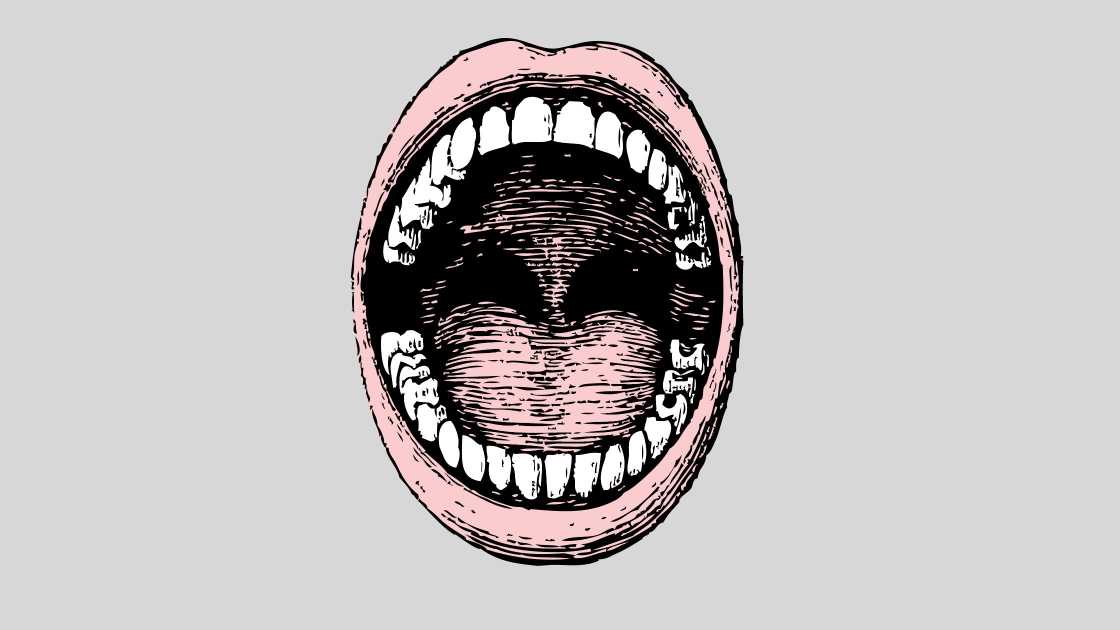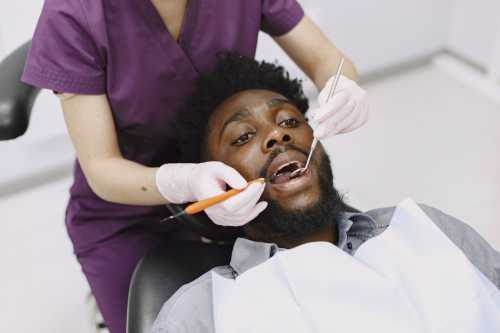There are various possible explanations for pain on the roof of the mouth, the majority of which will go away with little or no therapy. Pain may be caused by a more serious condition in less common circumstances.
Continue reading to learn more about the reasons for discomfort on the roof of the mouth.
Why does your mouth’s roof hurt?
There are several reasons why the roof of your mouth hurts. Some of these include:
Injury
An injury or trauma is one of the most prevalent causes of swelling on the roof of the mouth. The following are some of the most common causes of trauma:
- a scratch from a sharp piece of food
- eating or drinking a highly hot item
- impact the roof of the mouth
Dehydration
Swelling on the roof of the mouth might be caused by dehydration. Dehydration can produce a dry mouth, which can lead to swelling if it is not addressed. The following are some of the most common reasons of dehydration and dry mouth:
- consuming too much alcohol
- using certain medications
- insufficient hydration
- sweating excessively, especially on humid days or while exercising
- sickness
Sores in the mouth
Canker sores can be painful no matter where they appear in your mouth. It’s possible that you have a flare-up of blisters across your hard palate if the roof of your mouth hurts. The swelling roof of your mouth could be caused by a virus, stress, or an immunological problem.
Oral blisters, ulcers, and other mouth sores are typically minor but excruciatingly painful. Eating can be uncomfortable because your tongue pushes against your palate every time you swallow.
Mucoceles
A mucocele is a lumpy cyst that forms on the roof of the mouth and can include a deposit of mucus. Mucoceles are normally painless and develop following a slight injury to the mouth, such as a cut on the roof.
They normally don’t need to be treated and can burst on their own. A doctor can safely drain a mucocele that is unusually big or prone to recurrence.
Squamous papillomas
Squamous papillomas are caused by a virus called the human papillomavirus (HPV). Noncancerous lumps that grow on the roof of the mouth are known as squamous papillomas.
Normally, these tumors do not cause any discomfort. People should, however, seek treatment once they have been identified and diagnosed. It’s possible that a doctor will have to remove the lump via surgery.
Medical conditions
An underlying medical issue, such as oral cancer or viral hepatitis, may cause a swelling roof of the mouth. Oral cancer is a rare disease. The American Cancer Society estimates that 51,540 people in the United States will be diagnosed with mouth cancer in 2018.
Muscle spasms
Do you have muscle cramps in addition to the fact that the roof of your mouth hurts? It’s possible that something else is going on. Although you may not have muscles in your palate that can become stiff, a sore roof of the mouth has been related to muscle spasms induced by dehydration or an electrolyte imbalance in the past. Different minerals (electrolytes) are required by your body to balance its various fluid levels, including saliva, blood, and urine.
Torus Palatinus
Bony growths called “tori” or “torus” emerge on top of your native oral structure. The center of the roof of your mouth has a bony protrusion (still covered by gums) in the case of palatal tori.
Xerostomia (Dry mouth)
The roof of your mouth isn’t normally swollen from xerostomia (dry mouth), but it can irritate your hard palate if your dry mouth is severe. Because of a lack of saliva, you may have burning sensations, difficulties eating/swallowing, or easily irritated areas if you have a dry mouth. As a result, the roof of your mouth may become painful or scraped while you eat.
Oral thrush
Oral thrush is a yeast infection caused by the Candida albicans fungus. It is most likely to affect people who have a weaker immune system. On the roof and other parts of your mouth, cream or pale-yellow sores appear. These can bleed, causing pain in the mouth and cracked lips.
Oral thrush might also make you tasteless.
Use of alcoholic beverages
People who drink heavily and suffer from a hangover may have swelling and soreness on the roof of their mouths the next day. This is because alcohol causes your body to produce extra pee, which might dehydrate you. Dry mouth is a symptom of dehydration. Dry mouth can cause swelling and soreness on the roof of the mouth.
Home cures and medical treatment
In most circumstances, a swollen roof of the mouth can be treated at home or left to heal on its own. Common injuries, such as a burn from a hot beverage, recover in a matter of days.
Cold sores, often known as canker sores, normally heal on their own. A person may choose to use drugs to assist minimize the frequency or severity of cold sores in specific instances.
People might increase their fluids intake if they are dehydrated or have an electrolyte imbalance. Non-alcoholic beverages, such as water or herbal tea, are recommended.
If electrolytes are depleted, a person should drink a sports drink or juice to assist restore balance.
A person should get medical care from a doctor if they have an underlying condition. Cancer treatment options include surgery, radiation, and chemotherapy.
What can I do to avoid discomfort and pain in the roof of my mouth?
Along with being hydrated, make an effort to:
- Foods with too much spice, salt, or acids should be reduced or avoided.
- Tobacco products should be avoided or avoided entirely since they can cause oral cancer and other health problems that irritate the roof of the mouth.
- Brush and floss carefully to keep your mouth clean and clear of infection-causing microorganisms.
- To avoid burns, eat and drink cool foods and drinks that can scald your mouth.
- To avoid injuring your palates, take small bits of food and chew carefully.
- Also, try to manage your stress levels, as too much of it might lead to mouth sores.
Summary
The swelling or inflammation you’re experiencing may go away on its own in many circumstances. Swelling of the roof of your mouth due to more serious causes, such as cancer, is uncommon. It’s more likely that you’ve irritated your hard palate’s fragile skin.
Remember to give your skin time to heal while you recuperate. When your skin is already sensitive, avoid eating particularly hot or hard meals, and stay away from items that irritate the roof of your mouth. You should visit a doctor if the swelling does not go away in five to seven days.
WRITTEN AND EDITED RESPECTIVELY BY:
Michael Sarfo
Michael Sarfo is a graduate of the University of Ghana, Legon. He is a content creator for enochkabange.com and a writer for Wapomu







Leave a Comment